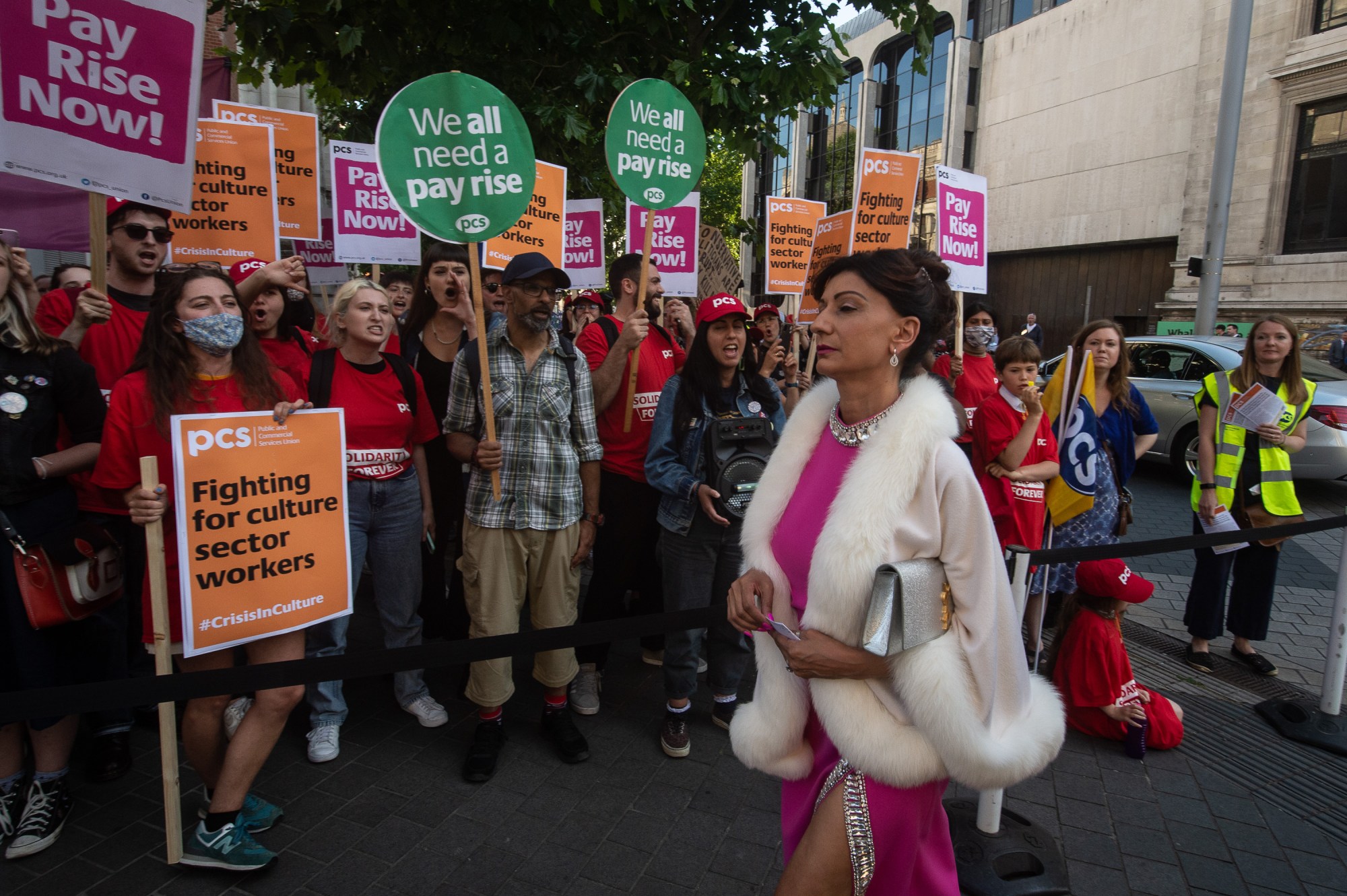How much richer did you get during the pandemic? Chances are, you didn’t. For most of us, COVID meant uncertainty; furlough if we were lucky, job losses if we weren’t, plenty of time spent in anxiety spirals about the state of the world and the meaning of life either way. Lockdown for the most part was a crap, lonely time, and lots of us are still dealing with its after-effects to this day.
That is, unless you’re one of the country’s rich and powerful. While ordinary people were being laid off and screwed over, Britain created a record number of billionaires during the pandemic. Earlier this year, as energy prices soared and wages stagnated, City bankers joked about “a run on champagne” as they celebrated their biggest bonuses since 2008.
Everyday workers’ struggles and the super-rich’s so-called successes aren’t unrelated; it’s always the people at the bottom of the chain whose hard work creates profits for those at the top. But when normal people try to fight for their fair share by joining unions, organising protests and taking strike action, they’re branded “class warriors” and told they’re being greedy or selfish. It’s an accusation only ever levelled at ordinary working people, despite the fact that the rich and powerful are effectively better unionised than anyone.
Take, for example, the UK’s well-documented and completely wild relationship with the private school system. Only around 6 per cent of people in the UK are privately educated, but they make up almost half of the UK’s most influential newspaper editors and almost a third of all MPs. And while we’re on MPs, research shows that a quarter of Tory MPs are private landlords: the same people making decisions about whether you can be kicked out of your flat or charged sky-high rents by a dodgy landlord are making thousands from their own tenants at the same time.
The rich and powerful don’t have any qualms about acting collectively in pursuit of their shared interests. Politicians happily usher their schoolmates into well-paid jobs; landlords shamelessly go off in online forums about how to circumvent basic tenants’ rights; business leaders brazenly lobby decision-makers about their own interests, enjoying direct access no ordinary person could dream of. The result is its own form of class war: profits go up and the powerful are protected, while wages go down and any safety net for ordinary people is stripped away.
Plenty of observers picked up on this dynamic at work earlier this month when a rush of coordinated resignations forced Boris Johnson to stand down as Prime Minister. Many tweets made the same joke: government ministers withdrew their labour to force a change in management; how ironic. The reality, of course, is much more complicated. Government ministers are a wholly different class of people from ordinary workers and how essential their ‘labour’ really is remains up for debate. But the point stands: when Boris Johnson got in the way of their shared interests, ministers had no hesitation in coming together and acting collectively to oust him.
These forms of solidarity between politicians, bosses, landlords and other rich and powerful people are rarely questioned. If anything, employers, businesses and lobbying groups are often positioned as neutral and deserving players in the political sphere, as if their ubiquitous presence in the halls of power is just a fact of life. Meanwhile, unions representing everyday working people are kept out and painted as extremists who want to bring down the country, rather than representative groups simply trying to make things fairer for everyone.
And those at the top aren’t embarrassed or subtle about it either. When rail workers took major strike action last month, Boris Johnson and his government responded by saying their demands were “too high” and by pitting ordinary people against each other with the suggestion that wage increases for rail workers would make it harder to solve the cost-of-living crisis. But while the strikes were dominating headlines, it was also reported that government planned to remove restrictions on bankers’ pay to impress overseas companies.
All of this makes it hard for ordinary people to act collectively. We know we’ll probably be painted as gauche and unruly; we might worry we’ll be victimised or punished for taking action. And with more and more of us in precarious and insecure jobs, or on zero hours contracts where we’re in direct competition with our workmates for shifts, promotions and wages, there’s even less incentive.
But everyday people coming together and acting collectively is the only thing that’s ever changed anything for the better. It was union action that secured the eight-hour work day, the weekend, equal pay legislation and the minimum wage, and it will be solidarity between people with shared experiences that forces change on the cost-of-living crisis, rubbish wages and crap treatment at work.
So if there’s any example to be taken from the rich and the powerful, it’s that collective action works and is nothing to be uneasy about. Bosses, landlords and politicians have each other’s interests at heart and aren’t shy about expressing their solidarity and acting collectively. The only way we can counter their power is to do the same.


